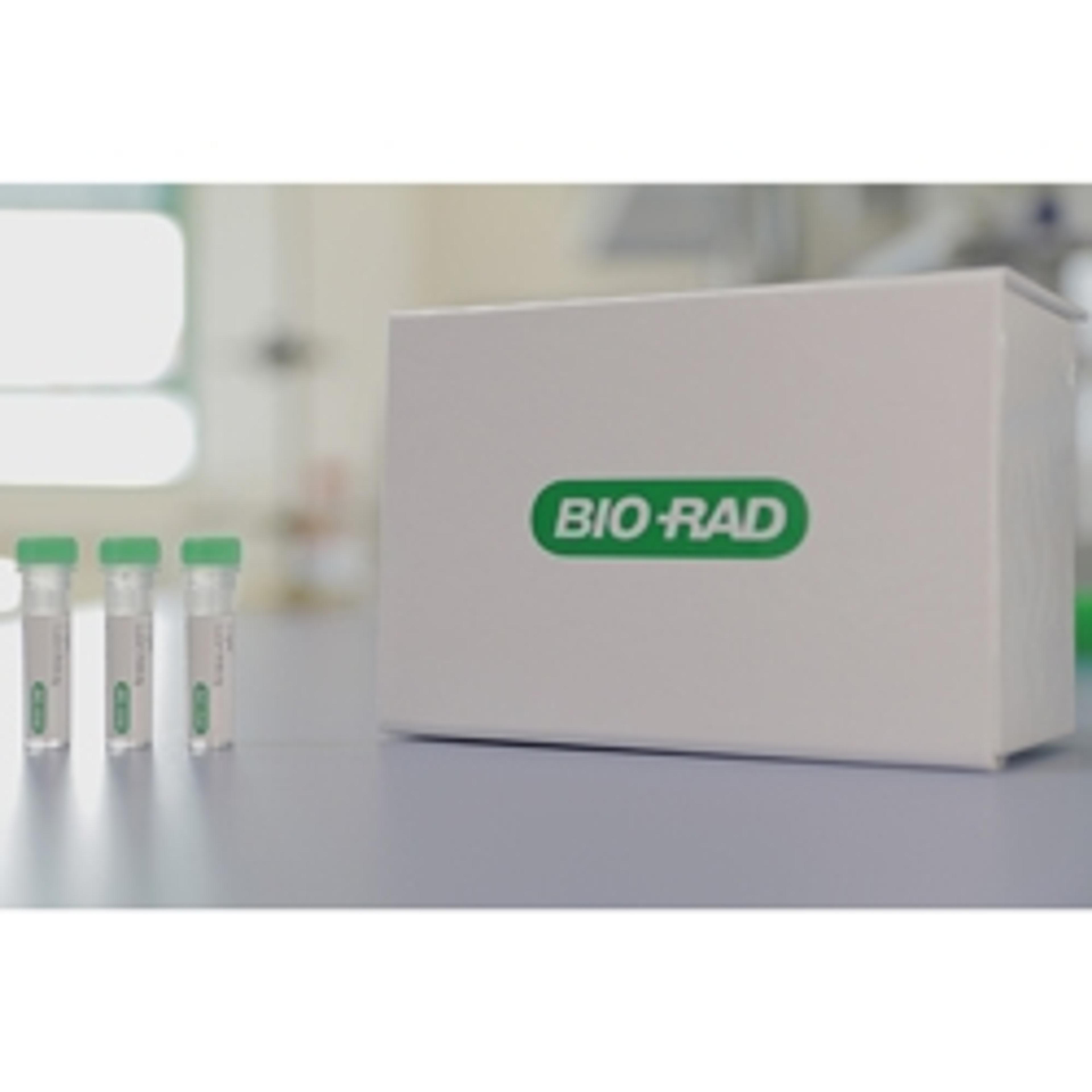Bio-Rad introduces anti-daratumumab antibodies
14 Feb 2022
Bio-Rad Laboratories, Inc., a global leader of life science research and clinical diagnostic products, has announced the launch of a range of anti-daratumumab antibodies that are specific for daratumumab (Darzalex) and inhibit the binding of the drug to its target, CD38. These highly specific and high-affinity recombinant antibodies are suitable for bioanalysis and drug monitoring of daratumumab and its biosimilars.
Daratumumab is an anticancer drug that binds to the CD38 protein overexpressed in multiple myeloma cells, leading to immune-mediated apoptosis of the tumor cell. The new range of anti-daratumumab antibodies comprises three fully human IgG1 inhibitory antibodies with varying levels of affinity. The antibodies are ideal for use as surrogate positive controls in anti-drug antibody assays, and for the development of pharmacokinetic bridging ELISAs to measure free drug.
Bio-Rad offers a portfolio of recombinant, monoclonal, nonanimal-derived anti-idiotypic antibodies and drug–target complex binders for the development of highly selective and sensitive assays. These critical reagents enable researchers to develop robust methods in a short timescale and produce translatable and reproducible results. The antibodies are generated using the Human Combinatorial Antibody Libraries (HuCAL®) and CysDisplay®, a proprietary method of phage display, along with guided selection methods to obtain highly targeted reagents.
“We are pleased to continue the expansion of our range of anti-idiotypic antibodies to support researchers developing novel treatments,” said Amanda Turner, Bio-Rad Product Manager, Life Science Group. “Our recombinant production methods result in batch-to-batch consistency, so researchers can rely on our antibodies to deliver reproducible results over the lifecycle of their bioanalytical assays,” she said.
The anti-daratumumab antibodies are approved for in vitro research purposes and for commercial applications providing in vitro testing services to support preclinical and clinical drug development.
Want the latest science news straight to your inbox? Become a SelectScience member for free today>>

